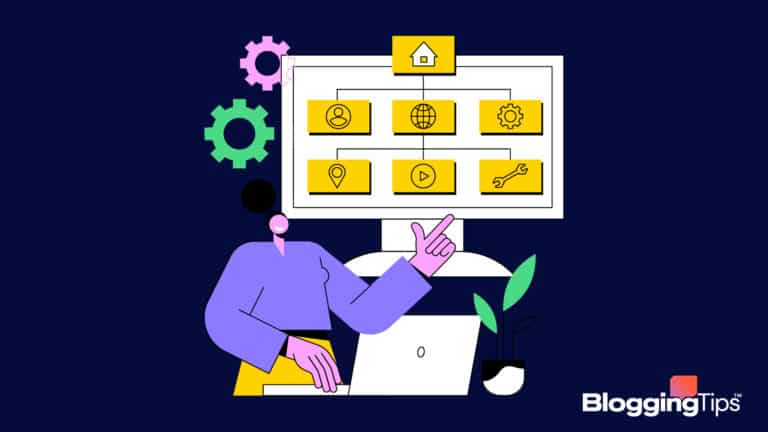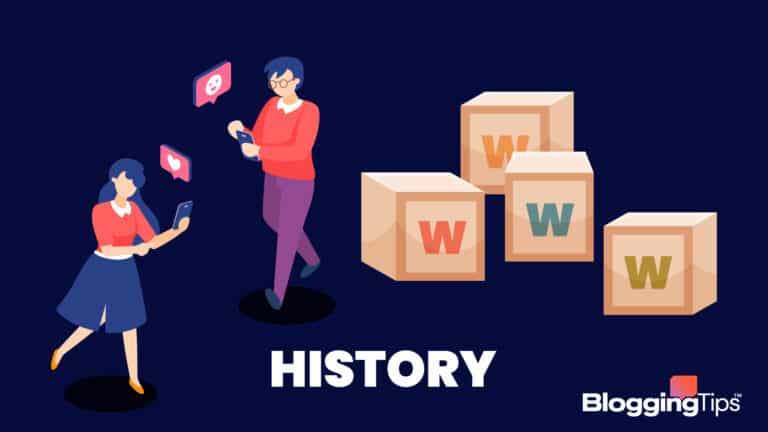Choosing a cloud provider can be daunting.
There are so many options, and it’s hard to know which one is the best for your needs.
In this post, we’ll compare Google Cloud and AWS, two of the biggest players in the cloud market.
We’ll look at their features, pricing, and ease of use to help you decide which one is right for you.
Stay tuned!
What Is Google Cloud?
Google Cloud is a cloud computing service for businesses that offers computing resources, application development, storage, and networking options.
It’s also the name of the infrastructure that Google uses internally for its own products and services.
With Google Cloud, businesses can tap into Google’s vast global network and use the same infrastructure that powers some of the most popular consumer products in the world, including Gmail, YouTube, and Google Maps.
In addition to its infrastructure, Google Cloud services offer a number of tools and services to help businesses with everything from developing and deploying applications to managing data and cutting edge cloud security.
The Google Cloud Platform is also constantly expanding, with new features and services being added on a regular basis.
As one of the leading providers of cloud computing services, Google Cloud service provider is an essential part of any business’s IT infrastructure.
What Is AWS?
Amazon Web Services, or AWS, is a cloud computing platform operated by Amazon.com.
It provides a mix of Infrastructure as a Service (IaaS), Platform as a Service (PaaS), and Software as a Service (SaaS) offerings.
AWS has more than 90 products and services, each of which falls into one of these three categories.
IaaS offerings include computing, storage, and networking resources that can be used to build and run applications in the cloud.
PaaS offerings provide developers with tools and services to build and run applications in the cloud.
SaaS offerings provide users with access to applications that are running in the cloud.
AWS was launched in 2006 and has since grown to become the largest cloud computing platform in the world, with over 1 million customers in 190 countries.
The company is headquartered in Seattle, Washington, and has offices in 28 countries around the world.
What Do Google Cloud Providers Offer To Cloud Guests?
When it comes to cloud computing, there are three main types of service providers: Infrastructure as a Service (IaaS), Platform as a Service (PaaS), and Software as a Service (SaaS).
Each type of provider offers different benefits to their guests, and it’s important to understand what each one has to offer before making a decision about which provider to use.
IaaS
Infrastructure as a Service providers offer guests the ability to rent out physical or virtual machine instances on which they can run their own software.
This gives guests the flexibility to customize their environment and choose the operating system, applications, and tools that they want to use.
However, it also means that guests are responsible for managing their own infrastructure and ensuring that it is secure.
PaaS
Platform as Service providers offers a complete platform on which guests can develop and deploy their applications.
This includes everything from the operating system up to the application level, and guests don’t need to worry about managing any of the underlying infrastructures.
This can be a great option for organizations that don’t have the resources or expertise to manage their own infrastructure.
However, it can also be more expensive than other options and may not provide as much flexibility.
SaaS
Software as a Service providers offer software applications that are hosted in the cloud and made available to customers on a pay-as-you-go basis.
This can be a convenient option for companies that want to use popular software applications without having to install them locally.
It can also be more cost-effective than buying licenses for each individual user.
However, guests may not be able to customize the applications as much as they could if they were running them locally.
Google Cloud Platform is an Infrastructure as a Service provider that offers guests a variety of features, including the ability to rent out virtual machine instances, storage space, and Google Cloud network locations resources.
Google Cloud Platform is a great option for companies that want the flexibility to customize their environment and choose the applications and tools that they want to use.
However, guests should be aware that they will be responsible for managing their own infrastructure and ensuring that it is secure.
What Does AWS Offer To The Users?
Amazon Web Services is a platform that provides on-demand cloud computing services to businesses and individuals.
AWS offers a wide range of services, including storage, networking, data analysis, and more.
One of the advantages of using AWS is that it eliminates the need for businesses to invest in their own infrastructure.
With AWS, businesses can scale their operations quickly and easily without incurring any upfront costs.
In addition, AWS provides a pay-as-you-go pricing model that allows businesses to only pay for the resources they use.
As a result, AWS can be a cost-effective solution for businesses of all sizes.
Benefits Of Google Cloud
The Google Cloud Platform (GCP) is a set of products and services that Google offers to businesses and individuals that want to use Google’s infrastructure for their own data and applications.
The benefits of using GCP are many, but some of the most notable include the following:
First, GCP provides businesses with a way to access Google’s world-class infrastructure.
This includes everything from Google’s global fiber network to its massive data centers.
By using GCP, businesses can tap into this infrastructure to power their own applications and services.
Second, GCP offers a variety of tools and services that make it easy for businesses to build and deploy applications on Google’s infrastructure.
These tools and services include things like App Engine, BigQuery, and Cloud Storage.
Third, GCP is highly scalable. This means that businesses can easily scale their applications and services up or down as needed. fourth, GCP is very reliable.
This is thanks to the fact that it is built on the same infrastructure that powers Google’s own applications and services.
And lastly, GCP is very affordable.
This is because businesses only pay for what they use.
There are no upfront costs or long-term contracts required.
All in all, these are just some of the many benefits that come with using GCP.
Benefits Of AWS
The mainstay of AWS is Amazon Elastic Compute Cloud (EC2).
EC2 provides on-demand, scalable computing capacity in the cloud.
Customers can launch virtual servers (instances) using a wide variety of operating systems and configurations.
Then they can access these instances using any internet-connected device to deploy their applications.
Storage options on AWS include Amazon Simple Storage Service (S3), Amazon Glacier, and Amazon Elastic Block Store (EBS).
These services provide customers with secure, durable block storage for their data and applications.
In addition, customers can use S3 to host static websites or serve files through a content delivery network (CDN).
AWS also offers various managed relational databases such as Amazon Aurora, MySQL, MariaDB, Oracle Database, and Microsoft SQL Server.
These services make it easy for customers to set up and operate relational databases in the cloud.
This enables customers to build applications that are triggered by events and scale automatically without having to provision or manage any servers.
In summary, AWS provides a wide variety of cloud computing services that allow customers to deploy their applications in the cloud quickly and easily.
Cons Of Google Cloud Service
Though Google Cloud Service has many perks, there are also several cons that users should be aware of before signing up.
One major downside is the cost; while Google Cloud Service is more affordable than some competitors, it can still be pricey for those on a tight budget.
Additionally, users have reported occasional outages and glitches, which can be frustrating.
Another potential issue is privacy; since Google stores all data on its servers, there is always the possibility that information could be accessed by unauthorized individuals.
Finally, some users find the interface to be confusing and difficult to use.
While Google Cloud Service has many advantages, it is important to be aware of the potential downsides before signing up.
Cons Of AWS
There are a few potential drawbacks to using AWS.
First, it can be difficult to get started with AWS if you’re not familiar with using cloud services.
The AWS management console can be confusing, and it can be hard to know which services to use for your project.
Additionally, AWS can be more expensive than other cloud providers, such as Google Cloud Platform or Microsoft Azure.
Finally, AWS has a relatively small range of products compared to other providers, which means that you might not be able to find the specific service you need.
However, overall, AWS is a powerful and versatile cloud platform that can provide a lot of benefits for your business.
AWS Vs Google Cloud: Giants Comparison
AWS and Google Cloud Platform are two of the biggest names in the cloud computing space.
And for good reason – they both offer a wealth of features and services that can help businesses to boost their productivity and cut their costs.
But how do they compare when it comes to core cloud firewall services?
Well, there are a few key differences between the two.
For starters, AWS offers a managed service called AWS WAF, which helps to protect web applications from attacks.
On the other hand, Google Cloud does not currently offer a managed service for web application firewalls.
However, it does offer some features that can be used to build a custom solution.
Another key difference is in the way that the two platforms handle the traffic.
On AWS, all traffic passes through a centralized gateway, which can make it easier to manage and monitor.
However, this also means that if the gateway goes down, all traffic will be disrupted.
Google Cloud, on the other hand, uses a distributed system that allows traffic to be routed around problems.
This can provide greater resilience but may require a more complex configuration.
So which platform is better for core cloud firewall service?
There is no simple answer – it depends on the specific needs of each business.
However, by considering the factors outlined above, businesses should be able to make an informed decision about which platform is best for them.
Wrapping Up
So there you have it – a comprehensive comparison of the two biggest players in cloud computing.
Which one is right for your business?
That depends on what you need, but both Google Cloud and AWS offer a lot of features and services that can help companies run their operations more smoothly.
Hopefully, this article has helped you make a decision about which provider to choose or at least narrowed down your options.
Thanks for reading!






